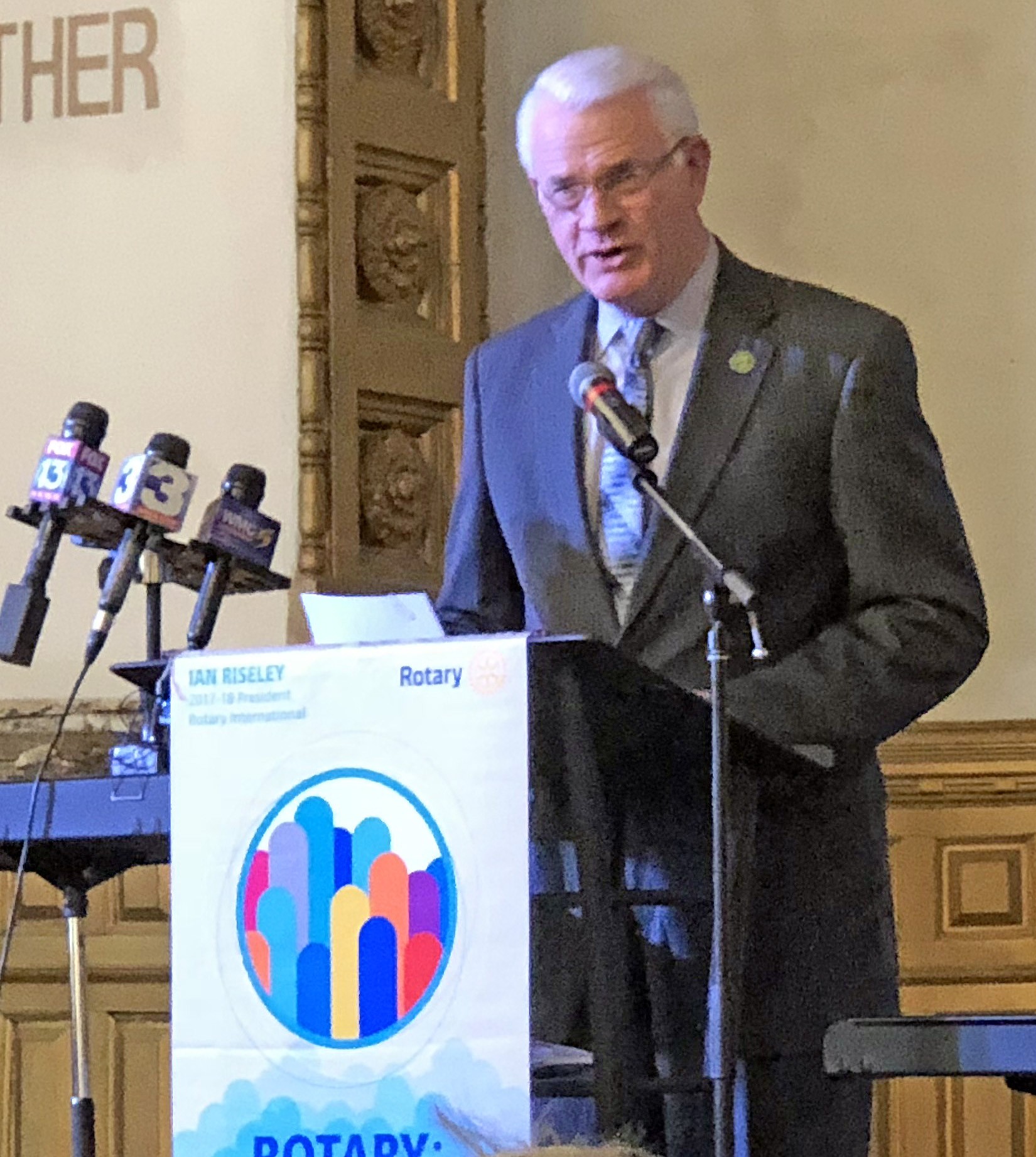 JB
JB
Luttrell addressing Rotarians
On Tuesday, Shelby County Mayor Mark Luttrell delivered what amounted to a valedictory address to the Rotary Club of Memphis at Clayborn Temple. It was to be his last address to that group as a Shelby County official, and the term-limited mayor loaded up his remarks with an outgoing incumbent’s customary litany of accomplishments — in his case: fiscal solvency, serious reductions in the county debt, economic development, and reduction of unemployment.
And, to his credit, Luttrell spent some time on two problems still much in need of being addressed: a lack of economic diversification and the ongoing plague of opioid addiction in Shelby County. On the latter score, he and members of the Shelby County Commission have agreed on the need for litigation to recover on damages to the county’s population, but have been at loggerheads on a specific legal strategy.
But, the Mayor said, “we’re getting close” to agreement, and in this he was backed up by a frequent critic, Terry Roland, who was one of several county commissioners in attendance and confirmed to the crowd that “we’re closer than you think.” In neither case, however, were specifics mentioned.
• Back in 2010, one of the three serious Republican candidates for Tennessee governor was Ron Ramsey, the state senator from Blountville in the state’s northeast corner. Ramsey had already made his mark by becoming the first GOP speaker/lieutenant governor in history, succeeding longtime Democrat John Wilder.
Ramsey would finish third in the Republican primary in 2010, behind current Governor Bill Haslam and then Chattanooga Congressman Zach Wamp. Unexpectedly, he chose not to run for reelection to the General Assembly in 2016 and, despite forecasts of another gubernatorial bid this year, he’s not running for anything. So what is Ramsey doing now?
Well, he’s tied in with the Farrar and Bates firm in Nashville, which does a fair amount of lobbying work for municipalities and, in fact, numbers the city of Memphis among its clients. So, theoretically, Ramsey could be working his legislative contacts on Capitol Hill on behalf of the Bluff City at some point.
Latest word, though, is that while Memphis is keeping the firm on retainer, Farrar and Bates has not as yet been asked to lobby any issues and have not registered on the city’s behalf.
• If two Middle Tennessee lawmakers have their way, litigants in Shelby County may begin facing longer waits to have their cases heard, starting next year. A new bill, SB2511/HB2679, co-sponsored by state Senator Bill Ketron (R-Murfreesboro) and state Representative Glen Casada (R-Franklin), would denude the 30th Judicial District (Shelby County) of “one division of circuit court or chancery court” as part of a complicated process to provide two new courts in Middle Tennessee.
The rob-Peter-to-pay-Paul effect of the bill would also mandate a shift of one circuit or chancery court division from the 20th Judicial District (Nashville, Davidson County) to the 21st (Williamson). Simultaneously, the elimination of a court in Shelby County would make possible the creation of a new court in the 16th District (Rutherford, Cannon counties).
Casada, the Republican majority leader of the state House of Representatives, hails from one county that would benefit from the exchange (Williamson, a fast-growing suburban “doughnut” county adjoining Nashville), while Ketron’s home base is in another (Rutherford).
The last time legislation was introduced to diminish court representation in Shelby County was in the General Assembly session of 2014 when one of Shelby County’s own, state Senator Brian Kelsey (R-Germantown), introduced Senate bill 1484, which would have eliminated two Circuit Court divisions in Shelby County.
That bill was based on a study prepared by state Comptroller Justin Wilson, which was dispatched to members of the General Assembly, including Kelsey, who serves as chairman of the state Senate Judiciary Committee. Entitled “Tennessee Trial Courts Judicial Weighted Caseload Study,” the document suggested, based on population figures, that Shelby County was over-represented in the number of its courts.
The contention was stoutly resisted by members of the Shelby County legal community. Then Circuit Court Judge W.A. “Butch” Childers noted, among other things, Shelby County’s disproportionate number of medical malpractice litigations and “pro se” cases relating to the county’s higher incidence of poverty.
Then state Senator Jim Kyle, now a Chancery Judge himself, noted as well the swelling of Shelby County dockets resulting from cases involving commuting citizens from adjoining areas.
Eventually, that 2014 bill was withdrawn by Kelsey, and no doubt similar objections will be made by local lawyers and judges to the new legislation.